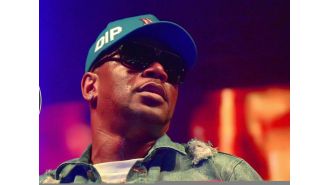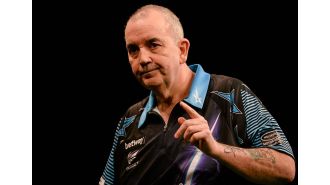Tony Hsieh and notes on happiness
Tony Hsieh, the co-founder of Zappos.com, passed away a few days ago.
Fittingly, there was a lot of appreciation for all he brought to the world. Hsieh built a very unique customer and people centric culture at Zappos before it was sold to Amazon. He shared his approach in his lovely book – “Delivering Happiness.” And, after the Zappos sale, he also spent a lot of his time and energy attempting to revitalize the Las Vegas downtown.
A few days later, it emerged that he had been on a self destructive loop in the past months with far too much alcohol and drugs. The Forbes article detailing this is a sobering read.
I was reminded of three things at once.
First, COVID-19 has made 2020 a particularly difficult year for our collective mental and emotional wellbeing. In Tony Hsieh’s case, these challenges severely exacerbated existing problems and ultimately proved fatal. But, for those of us who know of friends and family who’re having mental health issues, let’s encourage them to get help and be as supportive as possible.
Second, Tony Hsieh became a hero for many after he wrote “Delivering Happiness.” I loved that book and thought of him as an enlightened leader after reading that book. But, as he wisely noted in the book – “Things are neither as good or as bad as they seem.” So true.
Finally, I was reminded of Dave Winer’s excellent blog post – “Your human-size life.” Below is the post in full – it is one I think about from time to time. And, it is where my mind went after I read this final chapter of Tony Hsieh’s story.
In the early years of this blog I wrote a lot about the personal struggles of people who had attained financial independence only to find out that it revealed that money was not what was standing in the way of happiness. That’s contrary to the message of our society, which is this:
– Until you’re rich, you’re miserable.
– Once you’re rich, it’s all great!
I was fascinated with this topic, because a few years earlier, when the company I founded went public, I had achieved this independence, and found that I wasn’t happy. I felt like I had done all that had been asked of me, and I was promised happiness, and I had been cheated, and wanted to understand why.
Before I hit the mother lode, I was just another gold digger, struggling to make payroll, even though my company had offices on Easy Street (not a joke) in Mountain View. I was actually having as much fun as you could have, but didn’t know it at the time.
One evening, I was walking around the neighborhood of the office when I met a friend of a friend, let’s call him Joe (not his real name) and stopped to chat. I had heard that he was very rich, and asked why he lived in such a modest middle-class neighborhood when he could afford an estate in Los Altos Hills or Portola Valley. He said he preferred to live a modest life, to live within his ability to use his wealth, and just kept the money as a cushion in case something went bad, someone in his family got sick, or some other emergency.
I thought then this was puzzling, I didn’t get it, but now, with the benefit of almost 30 years of hindsight, I realize he was totally right. One of the biggest mistakes rich people make is to try to live larger than a single human being can. A mathematical impossibility. You can buy a big house, but you can only sleep in one bedroom at a time. You can own twenty fantastic cars, airplanes and yachts, but you can only be in one at a time. You can own an NBA team and a MLB team, and you get to sit in the nicest seat in the house at games, but you still can only sit in one seat. In other words, your humanity doesn’t increase just because your wealth did. You don’t get bigger.
And it’s even worse than it appears — the struggle to live more than one life will fail, and it will make you feel like a failure, just as you felt before you made the money! So being rich does not mean success if your goal is to achieve immortal super-human-ness.
You can see that horrific struggle in Peter Thiel’s actions and statements. He says he’s going to live forever, and so will today’s college grads. And I assume in the back of his mind he’s also going to solve the problem of just getting one body to use. He will persevere and find a way to sleep in his San Francisco mansion and his New York penthouse at the same time. But here’s the problem — even if he achieves these goals, and of course he won’t — he still won’t be happy.
I can say this with some certainty because I’ve been down the road he’s on, and I got off. And I just watched. Watched as the super-rich of my generation got old and their arteries hardened. They got used to talking to servants, and having their asses kissed at all times, and never having to listen to anyone tell them they’re full of shit. I’m a few years older than Thiel, and if he had seen what I have seen, he wouldn’t be so happy about living forever.
I think we all need a struggle, I think that’s where our creativity comes from. We need something that feels unattainable, but actually is not. But the struggle to rise above our humanity, that’s not going to happen for any of us. And the desire to have it robs your very human life of any value.
Joe had it right. Live a gentle human-size life. Go for a walk in your middle-class neighborhood and run into a friend of a friend and share what you see, and influence their life for the better. That’s the kind of thing a human can do. And it is, imho, where happiness comes from.






